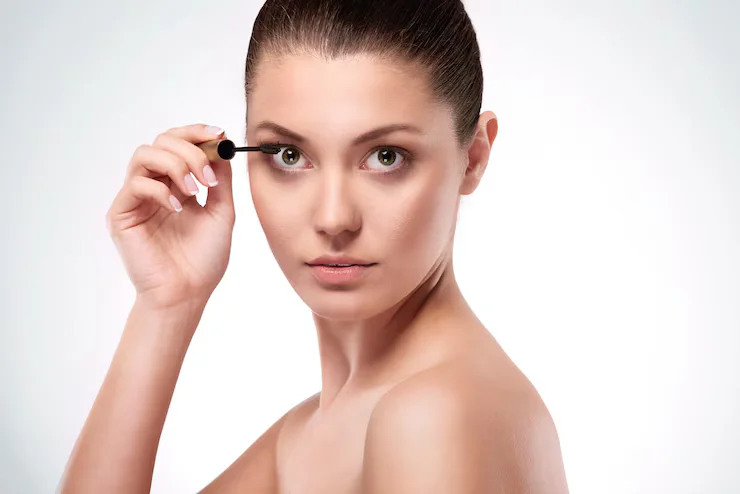Have you ever wondered why your skin behaves like it does?
Whether it’s breaking out or aging faster than you’d like, your genes could be key to understanding your skin better. By learning about your genetic makeup, you can take control and create a skincare routine tailored specifically for you.
Understanding your genetics means feeling confident in your skincare choices.
Skin Type
Your skin type can be oily, dry, or a combination of both. Understanding your skin type helps you choose the right products and improve your skincare routine.
Oily Skin
Oily skin produces excess sebum, which makes the skin appear shiny. This type of skin is prone to clogged pores, blackheads, and acne. People with oily skin may find their skin feels greasy throughout the day.
Oily skin can benefit from products that control oil without drying out the skin.
Dry Skin
Dry skin lacks moisture and often feels tight or rough. It may have dry patches and look dull or flaky. Those with dry skin may also experience irritation or redness.
Moisturizing regularly and using products designed for dry skin can help restore hydration.
Combination Skin
Combination skin has both oily and dry areas. Typically, the T-zone (forehead, nose, and chin) is oily, while the cheeks are dry or normal. Using products that target both oily and dry zones is essential for combination skin.
Aging Process
Your genetics play a key role in skin aging. Collagen and elastin, two proteins in the skin, are essential for maintaining firmness and elasticity. Some people produce more of these proteins, which can slow down visible signs of aging, like wrinkles.
Genes also affect the rate at which collagen breaks down. This leads to differences in when wrinkles and fine lines appear. Genetics determine the rate of this reduction and its visibility.
Pigmentation and Sun Sensitivity
The amount of melanin in your skin is genetically determined. Melanin helps protect the skin from the harmful effects of UV rays. Individuals with more melanin typically have darker skin and are less prone to sunburn.
If you have lower melanin levels, your skin may be more susceptible to sun. This elevates your risk of sunburn and skin damage. Understanding your skin’s melanin level aids in selecting proper sun protection methods.
Skin Disorders
Skin disorders are conditions that affect the skin in various ways. These conditions can result from genetics, lifestyle choices, or environmental factors. Here are a few common skin disorders and how they impact the skin.
Acne
Acne is a skin condition that occurs when hair follicles become clogged with oil and dead skin cells. This blockage leads to the formation of pimples, blackheads, and cysts. Acne is most common in teenagers but can also affect adults.
Treatment for acne often includes topical creams, oral medications, or lifestyle changes. Maintaining a clean face and reducing stress can also help reduce acne outbreaks.
Eczema
Eczema, also known as atopic dermatitis, causes the skin to become inflamed, red, and itchy. It can appear anywhere on the body, but it is most common on the face, hands, and legs. The condition often flares up during colder months or in response to irritants like certain soaps.
Managing eczema involves using moisturizers and prescription medications to control flare-ups. Avoiding triggers, like harsh chemicals, can help reduce symptoms.
Psoriasis
Psoriasis is a chronic autoimmune condition that leads to the rapid growth of skin cells, forming thick, scaly patches. These patches are typically red or silver in color and often appear on the elbows, knees, and scalp. Psoriasis can be triggered by stress, infections, or certain medications.
Treatment for psoriasis may include topical treatments, light therapy, or systemic medications. These options aim to reduce inflammation and slow skin cell turnover.
Rosacea
Rosacea is a condition that causes redness and visible blood vessels on the face. It often affects the cheeks, nose, chin, and forehead, leading to a flushed appearance. Rosacea can also cause pimple-like bumps that resemble acne.
Rosacea can be managed with topical treatments, oral antibiotics, and avoiding triggers. Staying away from hot drinks and spicy foods may help prevent flare-ups.
Hives
Hives are raised, red, itchy welts that appear on the skin as a reaction to allergens, medications, or stress. These welts can vary in size and often change shape quickly. They usually disappear within a few hours, but the condition may return if the trigger is not removed.
Hives are treated with antihistamines to relieve itching and swelling. Avoiding known allergens is essential to preventing outbreaks.
Skin Cancer
Skin cancer occurs when skin cells grow abnormally, forming tumors. The most common types are basal cell carcinoma, squamous cell carcinoma, and melanoma. Skin cancer is often linked to excessive sun exposure or tanning beds.
Regular skin checks and early detection can help manage skin cancer. Treatments may include surgery, radiation, or topical therapies. For example, you can check genetic risk for skin with a DNA test to learn more about your predisposition.
Collagen and Elastin Production
Collagen and elastin are proteins that give your skin structure and flexibility. Your genes influence how much of these proteins your body makes. The more collagen and elastin your skin has, the firmer and more elastic it remains.
As you age, the production of these proteins naturally decreases. This can result in sagging skin and the development of wrinkles. Genetics determines the rate of this reduction and its visibility.
Personalized Skincare
Personalized skincare focuses on understanding your skin’s unique needs. With personalized skincare, you are more likely to see long-term improvements. It makes your routine more efficient and effective for your skin.
Protect from UV
If you know your skin is more sensitive to the sun, using sunscreen is important. Broad-spectrum sunscreen blocks both UVA and UVB rays, which can cause skin damage. Sunscreen should be applied daily, even on cloudy days, to prevent harm from long-term sun exposure.
Sunscreen helps to reduce the risk of skin aging and skin cancer. It is a necessary step for maintaining healthy skin.
Hydration
Dry skin requires constant moisture to stay healthy. Hydrating products like moisturizers and serums help to lock in water and keep the skin soft. Hydration also supports the skin’s natural barrier, which protects it from irritants.
Using hydrating products that suit your skin type helps prevent dryness and discomfort. These products can also reduce the appearance of fine lines.
Targeted Treatments
Targeted treatments can address specific skin concerns, such as acne, dark spots, or redness. These treatments are formulated with ingredients that directly target the issue you want to improve. They can be more effective than general skincare products in treating specific problems.
Focusing on one skin issue at a time ensures that the treatment is strong enough to help. It may also lead to quicker results.
Diet and Lifestyle
A healthy diet and lifestyle can improve the health and appearance of your skin. Eating foods rich in vitamins and antioxidants supports the skin’s natural repair processes. Drinking plenty of water helps to keep the skin hydrated and flushes out toxins.
A balanced lifestyle with regular exercise also promotes healthy skin. Reducing stress can lower the risk of skin breakouts and irritation.
Inflammation and Skin Sensitivity
Genetics influence how the skin reacts to inflammation. Some individuals have genes that make their skin more sensitive to external factors like UV rays, pollution, or strong skincare products. This can lead to conditions such as redness, irritation, or flare-ups of conditions like rosacea.
People with a genetic predisposition to inflammation may experience longer-lasting effects from environmental stressors. These genetic factors can also make the skin more prone to developing sensitivity or reacting negatively to certain ingredients. Understanding this can help in selecting products that calm and protect the skin from further irritation.
Wound Healing and Scarring
Genetics affect how quickly the skin heals after an injury. Some people’s genetic makeup allows them to recover faster with less noticeable scarring. Others may have a slower healing process or may develop raised scars, such as keloids, after an injury.
The genes that regulate collagen production and skin regeneration play a major role in wound healing. Those with certain genetic markers may experience more scarring or longer recovery times. By knowing this, people can take steps to improve healing and minimize scars by choosing appropriate treatments.
Skin Sensitivity to Environmental Factors
Genetic factors determine how your skin reacts to environmental stressors, like changes in temperature, humidity, or pollution. Some people’s skin is more likely to become irritated, dry, or inflamed when exposed to these factors. This sensitivity can lead to conditions like eczema, rosacea, or general discomfort.
Individuals with a genetic tendency for heightened skin sensitivity may need to be more cautious with their skincare routines. They may need to avoid products with harsh chemicals, fragrances, or allergens. Understanding this can guide them in selecting gentler products that protect and nourish their skin.
Unlock Your Skin’s True Potential With Your Genetic Blueprint
Understanding your genetic blueprint can give you a whole new perspective on your skin. Instead of trying every product available, you can make informed decisions that cater to your skin’s unique needs. Adopting this personalized approach helps address skin concerns effectively and enhances your natural beauty.
Healthy skin isn’t just about product choice-it’s about understanding your skin’s actual needs. With a better understanding of your genetics, you’re one step closer to achieving glowing, healthier skin.
Did this article broaden your knowledge? Visit our blog for more educational content.







